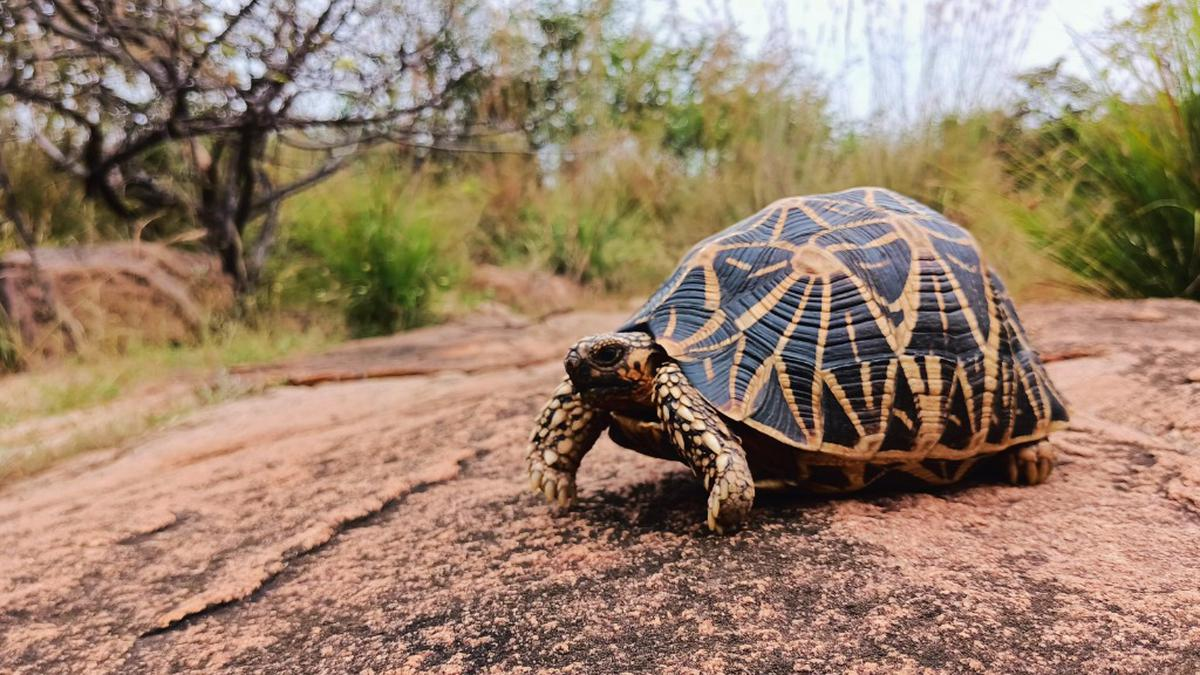Important Facts For Prelims
Indian Star Tortoise
- 21 Jan 2023
- 2 min read
Why in News?
A new study on the Indian Star Tortoise (Geochelone elegans) has found that illegal trade and unscientific translocations are causing major losses to the species' genetic diversity and habitat.
- The research calls for proper conservation strategy to combat the fragmented distribution and recommends intensive genetic screening of the species to implement scientific breeding.
What are the Key Facts about Indian Star Tortoise?
- Habitat:
- Indian star tortoises are found across the Indian subcontinent, more specifically, in the Central and Southern parts of India, in West Pakistan and in Sri Lanka.
- It is typically found in dry, open habitats such as scrub forests, grasslands, and rocky outcroppings.
- Threat:
- The species is facing twin challenges of a threat to its habitat at one level and loss of its genetic diversity at the other.
- Their highly fragmented habitat of the species is greatly influenced by an increased level of urbanization and agricultural practices.
- Due to subsequent hybridisation of these species over the years, Indian star tortoises have lost genetic diversity.
- Also, according to the Wildlife Crime Control Bureau, 90% of the trade of Star Tortoise occurs as part of the international pet market.
- The species is facing twin challenges of a threat to its habitat at one level and loss of its genetic diversity at the other.
- Protection Status:
- IUCN Red List: Vulnerable
- Wild Life Protection Act 1972: Schedule IV
- Schedule IV: This list is for species that are not endangered. It includes protected species but the penalty for any violation is less compared to the Schedules I and II.
- Convention on International Trade in Species (CITES): Appendix I
UPSC Civil Services Examination, Previous Year Question (PYQ)
Q. Consider the following: (2013)
- Star tortoise
- Monitor lizard
- Pygmy hog
- Spider monkey
Which of the above are naturally found in India?
(a) 1, 2 and 3 only
(b) 2 and 3 only
(c) 1 and 4 only
(d) 1, 2, 3 and 4
Ans: (a)





